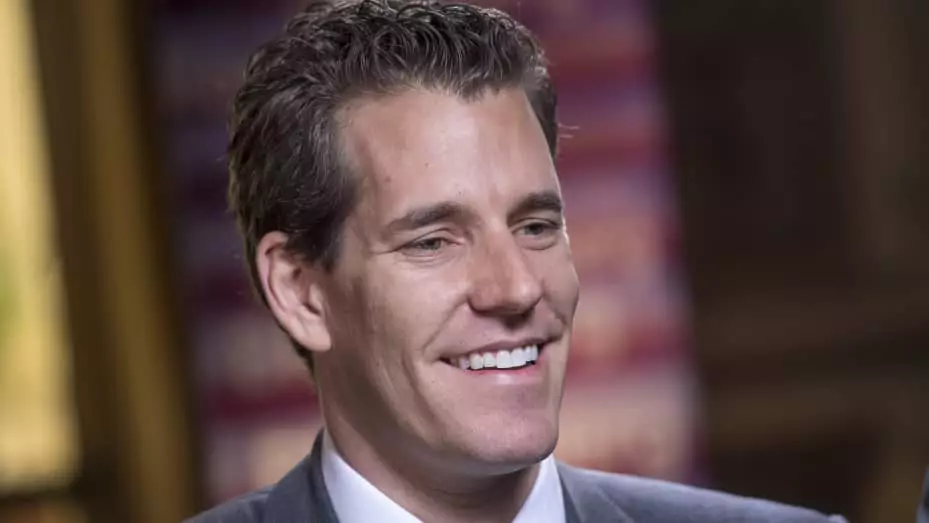The cryptocurrency industry is undergoing a significant transformation as key players confront and challenge the very institutions and regulatory frameworks that govern them. Recently, Tyler Winklevoss, the co-founder of the Gemini cryptocurrency exchange, made headlines with a bold decision to align his company’s policies with those of Coinbase, sharply critiquing the involvement of former U.S. Security and Exchange Commission (SEC) officials in firms he deems complicit in what he describes as an “unlawful war on crypto.” This move signals a growing discontent within the cryptocurrency community regarding regulatory practices and the oversight of digital assets.
Winklevoss’s announcement comes on the heels of Coinbase CEO Brian Armstrong’s outspoken criticism of law firms that employ ex-SEC officials, particularly in light of their perceived overreach against the cryptocurrency sector. In a pointed post on social media platform X, Winklevoss called for a “running list” of SEC officials who had been instrumental in crafting regulations that many in the crypto community view as oppressive and damaging to innovation. His decision to adopt a similar stance as Armstrong suggests a shift toward more principled corporate governance, as industry leaders seek to distance themselves from organizations that perpetuate unfavorable regulatory environments.
Armstrong’s recent actions, including severing ties with the global law firm Milbank due to their recruitment of Gurbir Grewal—former SEC Director of Enforcement—underscore a wave of criticism from key crypto figures. Grewal, known for overseeing numerous enforcement actions against digital assets, resigned right before the SEC’s pivotal appeal in its case against Ripple, raising questions about the motives behind such timing and the agency’s consistency in regulatory practices. This development has elicited a tangible response from the crypto community, with voices like attorney Jeremy Hogan cautioning that the SEC’s aggressive tactics could ultimately erode its influence over a sector that operates at the intersection of innovation and regulation.
Armstrong’s comments reflect a growing sentiment that the SEC, under the leadership of its various chairs, has adopted a convoluted approach toward cryptocurrency regulation that serves to inhibit rather than encourage growth. He articulates a belief that many individuals within the SEC who failed to resign amid its controversial strategies should face reputational repercussions, arguing that they should not be permitted to reap financial benefits from an industry they once sought to constrain.
This discussion raises broader questions about accountability within regulatory bodies. The fact that major players like Winklevoss and Armstrong are now leading the charge for an industry-wide self-regulation based on ethical standards is telling. If firms continue to foster connections with those who have played a role in “stifling” the crypto sector, it risks not only the credibility of those firms but, ultimately, the progress of the cryptocurrency ecosystem itself. Such accountability mechanisms could prove crucial in shaping a more constructive relationship between the industry and regulatory agencies.
Interestingly, the calls for accountability do not only center on existing regulatory frameworks but extend to prospective leadership within agencies like the SEC. The idea floated by Tron founder Justin Sun to hire outgoing SEC Chair Gary Gensler reflects the nuanced and sometimes contradictory nature of relationships between the crypto world and regulatory authorities. Sun’s proposition, contingent on Gensler’s commitment to support a positive evolution in crypto regulation, underscores the complex interplay between regulation and innovation.
However, what Winklevoss and Armstrong signify through their actions is more than mere symbolic resistance. They are signaling a shift toward ensuring that every stakeholder is held accountable for their past actions. This movement is critical in an industry often viewed through a lens of mistrust and hostility by regulatory bodies. The future of the cryptocurrency landscape heavily relies on transparent and accountable regulators who genuinely engage with the innovators within their jurisdiction.
The recent developments initiated by leaders like Winklevoss and Armstrong showcase the growing frustration with the current status quo in crypto regulation. As the industry continues to evolve, so too does the call for a more balanced, transparent, and accountable regulatory framework that supports innovation rather than stifling it. The implications of these moves could reverberate throughout the ecosystem, fostering a culture of responsible governance and engagement between regulators and industry participants.

